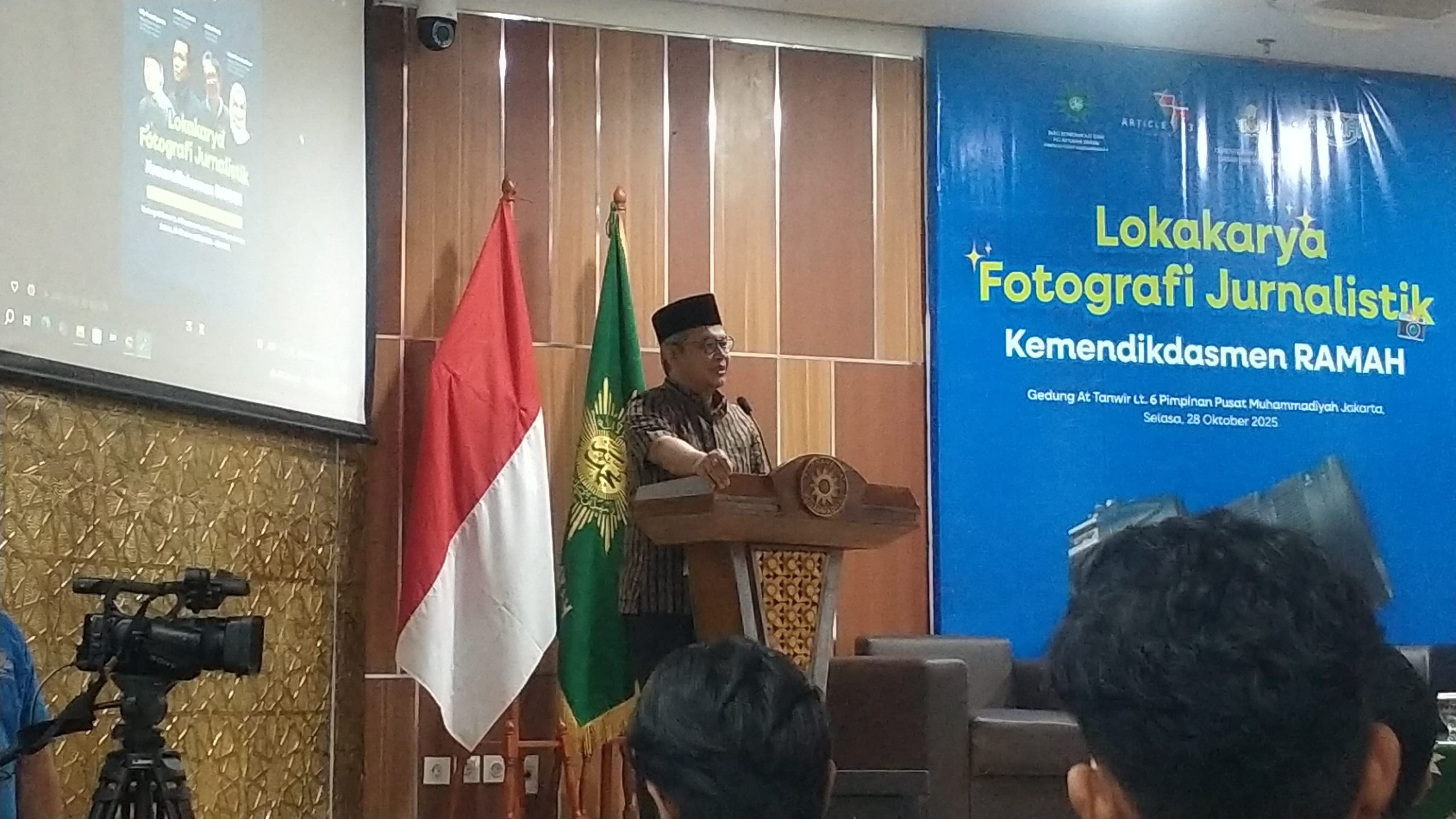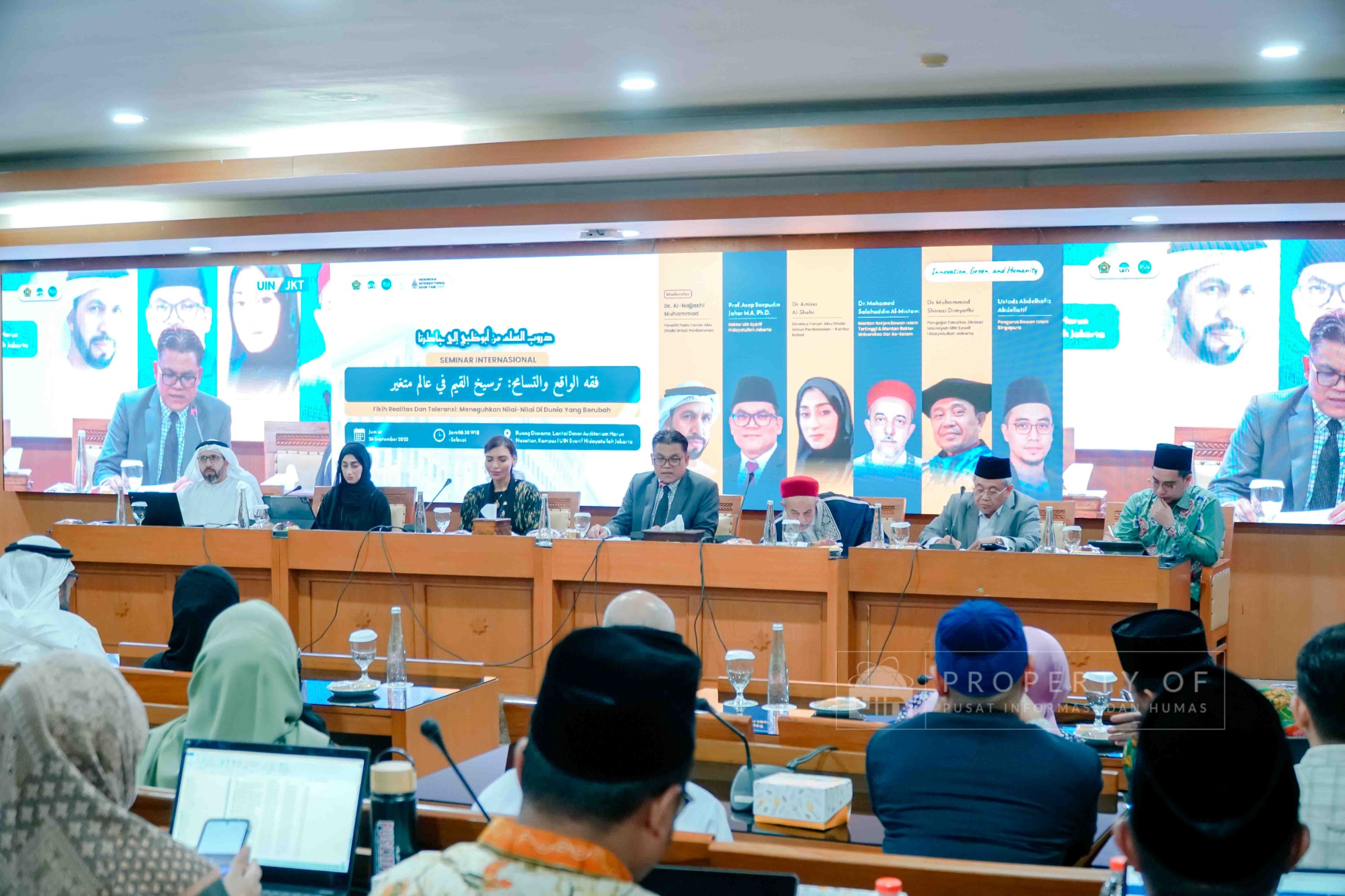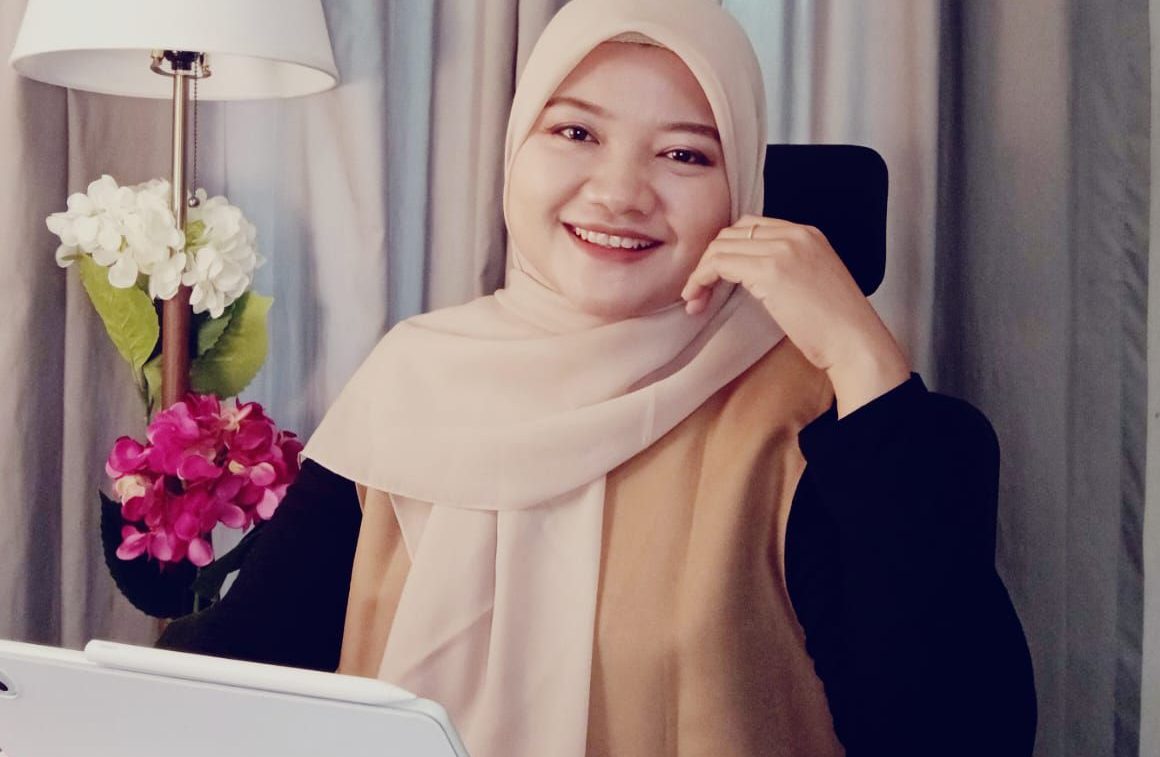thebantenpost.com. Jakarta — In an effort to enhance visual communication capacity within the educational environment, the Central Board of Muhammadiyah, through the Bureau of Public Communication Services, in collaboration with the Ministry of Primary and Secondary Education (Kemendikdasmen), held the Journalistic Photography Workshop: Kemendikdasmen Ramah on Tuesday, October 28, 2025.
The event took place at the 6th-floor Hall of the At-Tanwir Building, Muhammadiyah Central Office, Jl. Menteng Raya No. 62, Central Jakarta.
The Central Board of Mathla’ul Anwar (PBMA) also participated by sending two Media Staff members, Aceng Murtado and Agus Jubaedi. Their participation reflected PB Mathla’ul Anwar’s commitment to strengthening media competence, publication, and da’wah communication within the organization.
The event was officially opened by M. Izzul Muslimin, Secretary of the Muhammadiyah Central Board, who expressed his appreciation for the enthusiasm of the participants.
“Welcome to the Muhammadiyah Central Office to join the Journalistic Photography Workshop: Kemendikdasmen Ramah,” said Izzul Muslimin.
In the first session, Iwan Setyawan, Senior Photojournalist of Kompas Daily, shared his experiences and the fundamental principles of photojournalism. He emphasized that a photo is not merely an image but also a form of storytelling.
“Photojournalism is a combination of images and words. When we capture an event and write its caption, we must put our soul into it so that the audience can feel what’s happening,” explained Iwan.
Meanwhile, Aceng Murtado, Media Staff of PB Mathla’ul Anwar, shared two reflections on the significance of the event.
“This activity is not just about gaining knowledge but also a form of collaboration between Muhammadiyah and other Islamic organizations, especially Mathla’ul Anwar, to strengthen and work together for the common good,” said Aceng.
He further highlighted the importance of adaptive capability in the world of da’wah media.
“In today’s digital era, Islamic institutions must be able to keep up with the times so that their da’wah and works remain relevant and beneficial to the community,” Aceng concluded.




